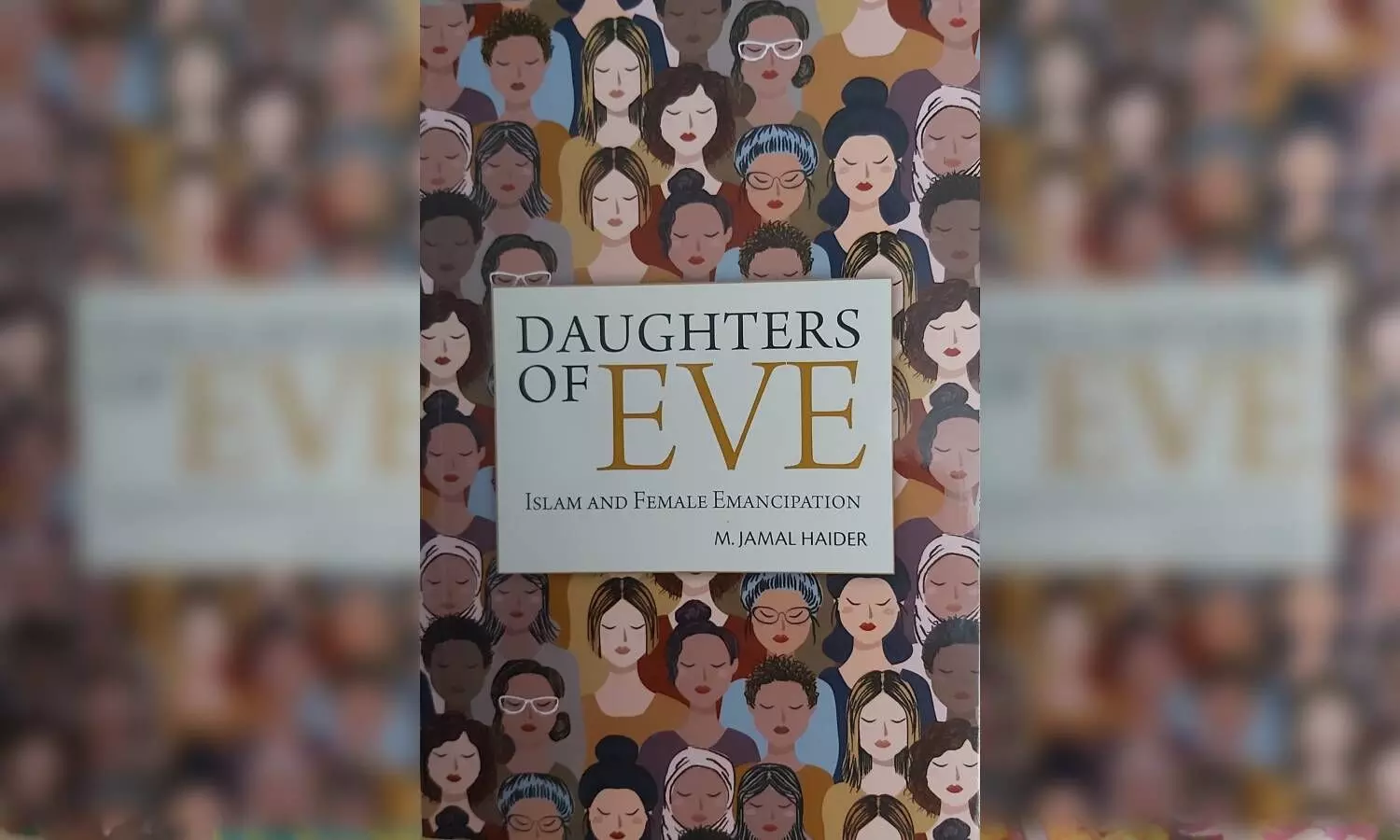Emancipation of Muslim women: The real story
A just-released book, 'Daughters of Eve: Islam and Female Emancipation', seeks to dispel the erroneous perception.
By J.S. Ifthekhar
Hyderabad: Oppressed, submissive, veiled, uneducated, and deprived of rights – that about forms a word picture of Muslim women today. Labels are for clothing, not for people. Society, however, tends to judge Muslim women through the prism of stereotypes. The status of women in Islam remains the most controversial of subjects with people taking diametrically opposite views. The widespread misunderstanding of Islam and the typecasting of the females only adds to the confusion.
A just-released book, 'Daughters of Eve: Islam and Female Emancipation', seeks to dispel the erroneous perception. It examines the position of women and how their condition changed down the ages. Through a comparative study, the book tells how women fared in the ancient age (pre 7th century CE), in the Islamic age (7th-18th century CE approximately), and in the modern age. The book raises critical questions that are waiting to be answered.
The author, M. Jamal Haider, a geologist by profession, comes up with a compelling book which makes for a jolly good read. Packed with interesting research and illuminating history, 'Daughters of Eve' clarifies misconceptions concerning Islamic injunctions about women. It also discusses such topics like why the Prophet of Islam married a number of times and the contribution of Muslim female scholars.
"If it was difficult to be a woman in the past, it has become more difficult to be a Muslim woman in the present," writes Haider, the Australia-based Indian author, referring to the misleading information going around. More often than not female modesty is defined as some kind of "forced oppression". Slave girls in dazzling jewellery and flimsy silk is how Muslim culture is often defined. What precipitates matters is the lack of correct information about Islam among non-Muslims and when it comes to Muslim women many are not just ignorant but also misinformed, writes Haider.
The condition of women, he says, has been awful through all ancient civilizations. But despite the suppression, some women made their mark as poets, rulers, warriors, and priestesses in ancient Mesopotamia, Egypt, Greece, Rome, and other civilizations. However, several other women played important roles without getting due respect and reward.
Tracing the developments, Haider says the world witnessed the "great emancipatory leap" for women with the advent of Islam. There was a qualitative change in the condition of women in general. This was because Islam judged people not on the basis of gender, race, caste or wealth but 'taqwa' (piety). Motherhood was called a blessing and women were given the right to education and property besides economic and legal rights. From being buried alive at birth to a status of parity with men, women's emancipation turned full circle. Haider dwells at length on the subject and cites Quranic verses and Hadiths to show how Islam provided a variety of rights leading to their true emancipation when the world considered women to be no more than chattel.
In recent centuries, women in Muslim societies regressed intellectually even as women in Europe and the West progressed. But of late Muslim women have turned to education again. And this time the impetus comes from modernity and not Islamic scholars. Haider sees an ulterior motive in the talk of contemporary Muslim women being backward and suppressed. If they are not sufficiently educated today the reason is not religion but historical, political, and cultural, he argues.
The book discusses in detail contemporary female issues, historical social changes affecting women, and the root cause of female suppression. Providing a Muslim perspective, Haider says enlightenment of women, providing them education, financial freedom, legal recourse, physical security, love and respect is more important. "Islam doesn't consider commodification of female body or the public display of lust to be emancipation. An Ivy-league PhD holder may not necessarily be a good person," he says.